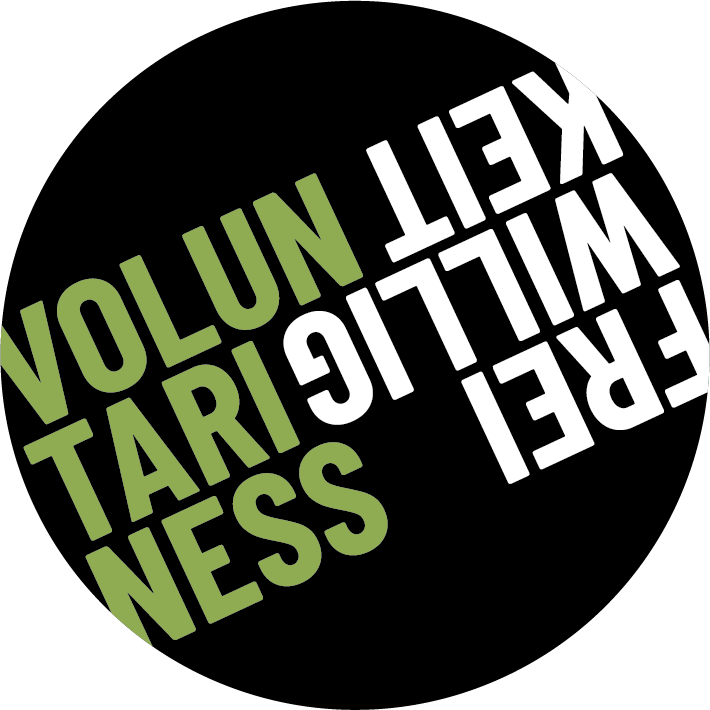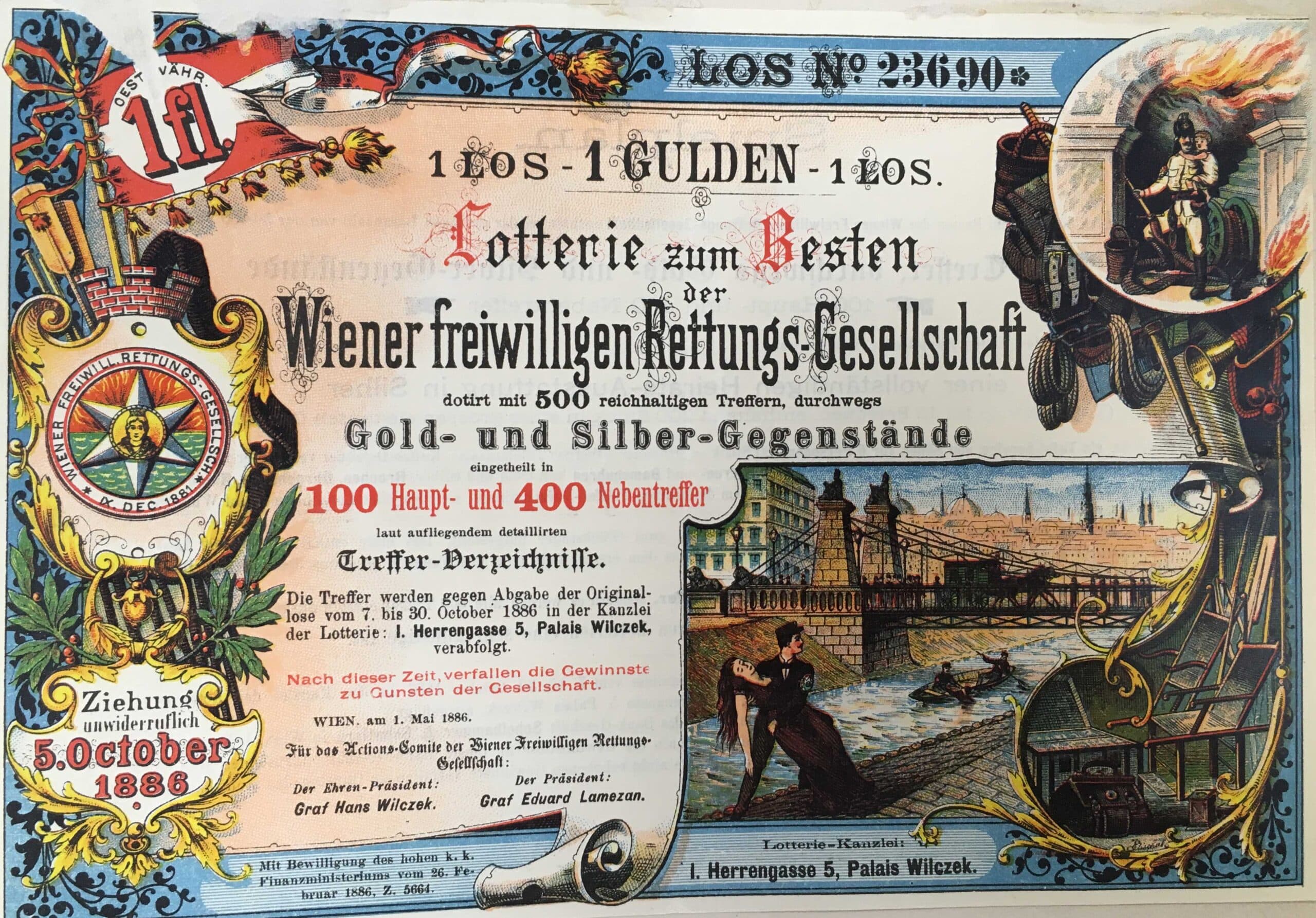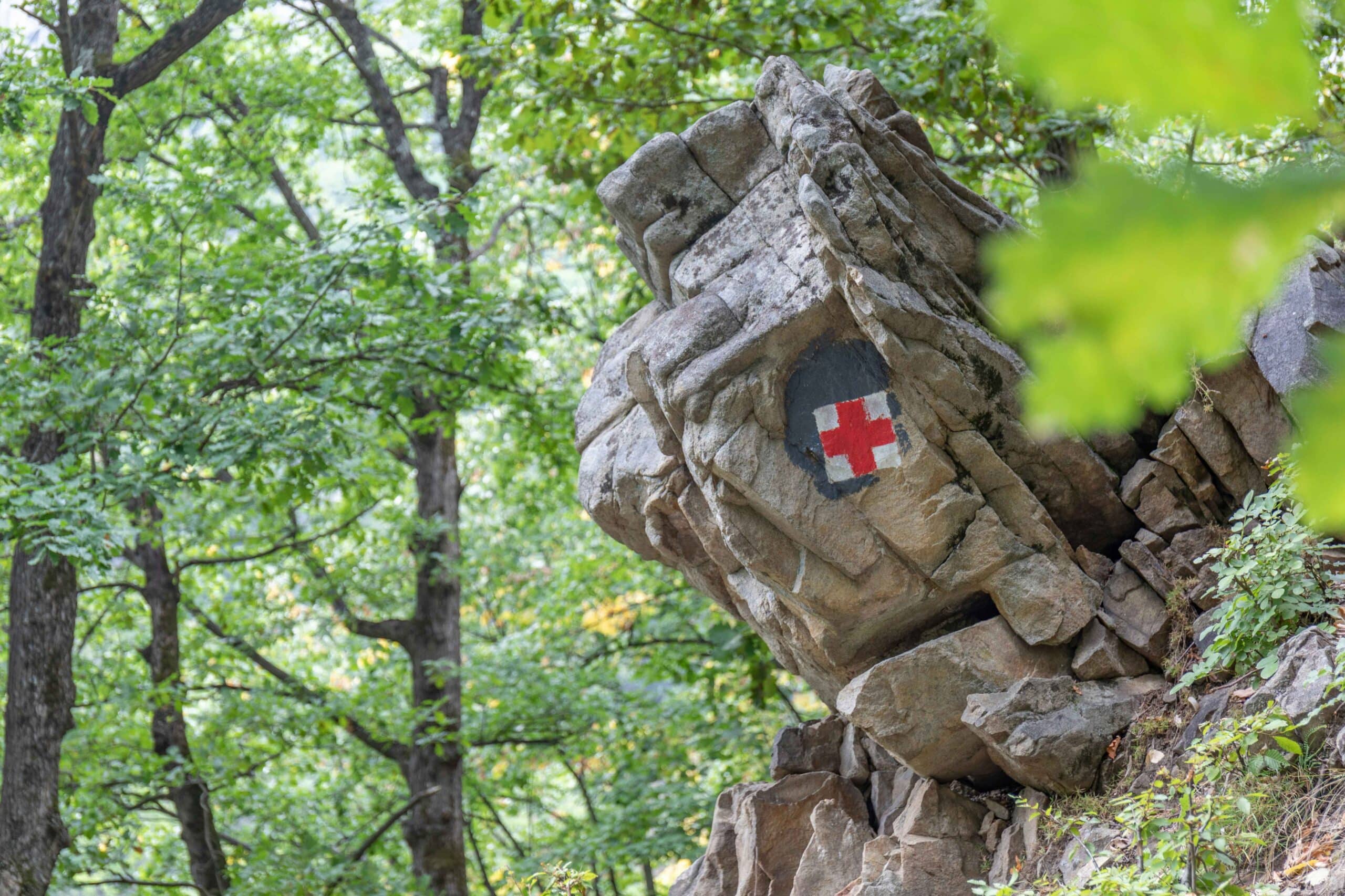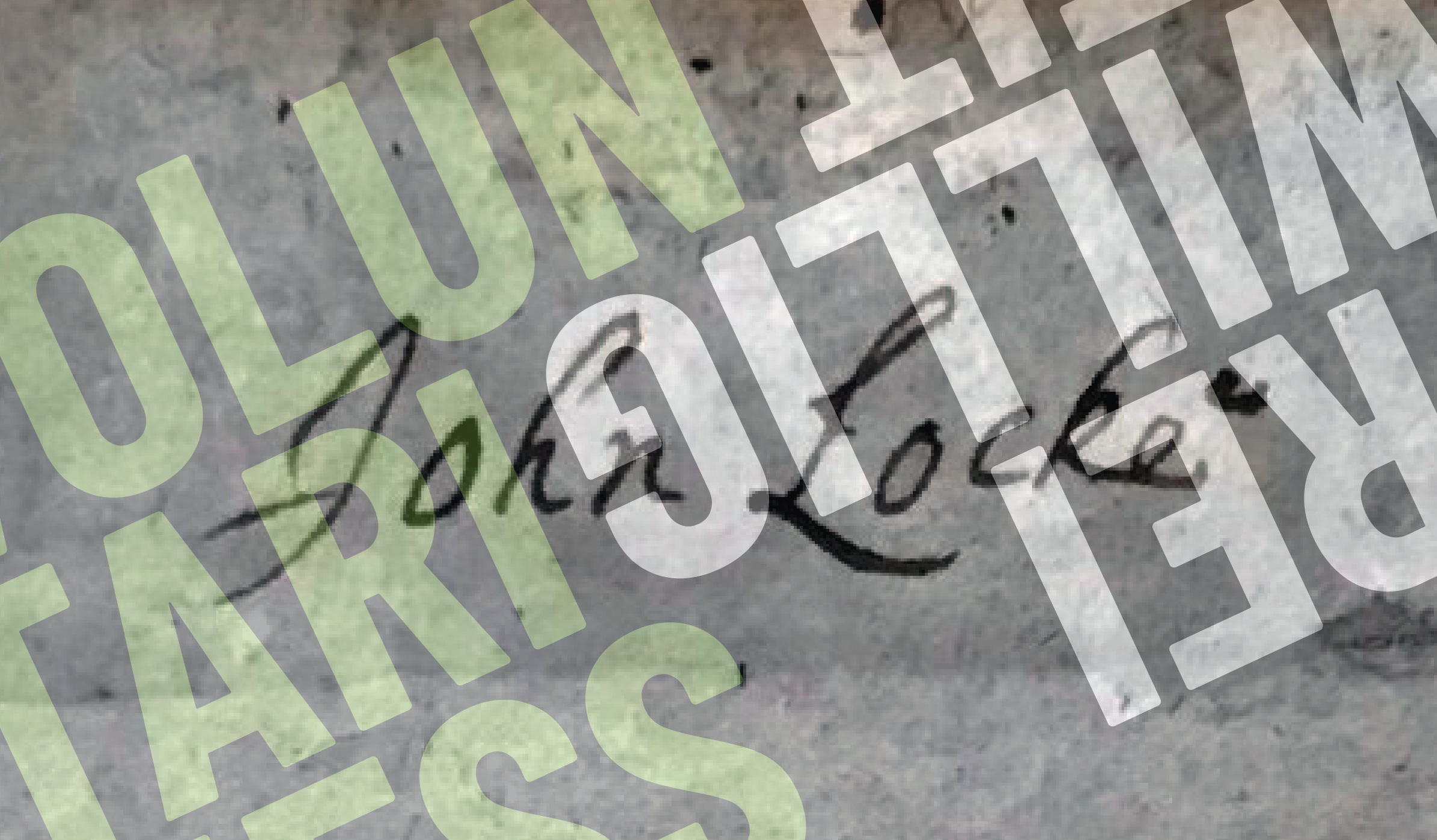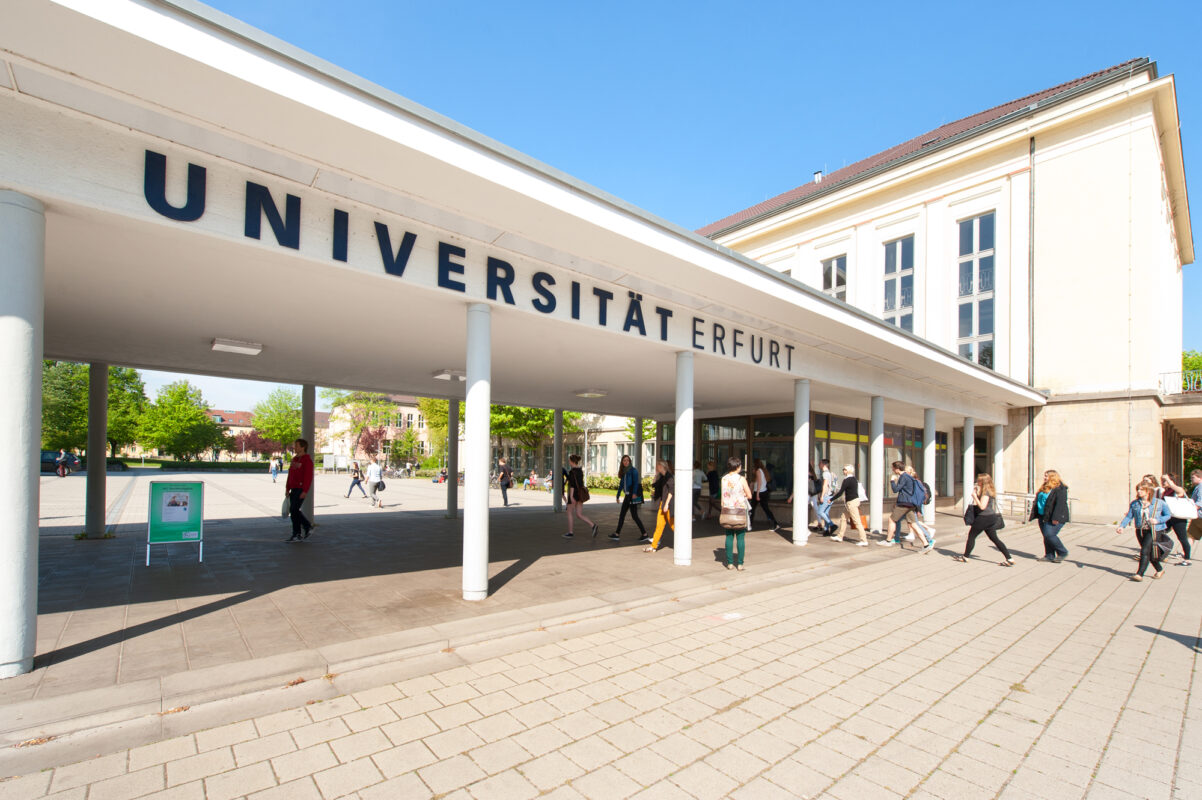
By Alexandra Oeser and Jürgen Martschukat

Alexandra Oeser is a sociologist and historian at the University of Paris-Nanterre.
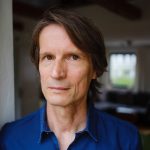
Jürgen Martschukat is a historian at the University of Erfurt.
Joys and Challenges of Researching Voluntariness: An Interview with Alexandra Oeser
During its funding period, the Research Unit on Voluntariness can invite several international scholars to Erfurt for extended stays. As Mercator Fellows, they join the group in order to discuss and further evolve our research approach towards voluntariness from fresh and independent perspectives. As experienced experts in their respective fields, they contribute a great deal of methodological knowledge and enrich the group’s projects on their theoretical basis. Usually, however, these colleagues are more or less new to the concept of voluntariness and are themselves curious about what it means with respect to their own research. So far, we have welcomed two fellows to Erfurt as “temporary voluntariness scholars.” In summer 2022, sociologist and historian Alexandra Oeser from the Université Paris-Nanterre joined us as a specialist on the concepts of Eigen-Sinn and agency. The following year, Australian sociologist and Foucault expert Mitchell Dean spent a semester with the group. Alexandra in particular became quite enthusiastic about exploring issues of voluntariness within her own work; joint publications are in the making and, fortunately, a long-term relationship has emerged between her and the group. About a year after Alexandra’s Mercator fellowship, she and Jürgen Martschukat looked back at how her former and current research connect to voluntariness, while also recalling their cooperation. An interview with Mitchell Dean is slated for the near future. In this post in particular, Alexandra relates voluntariness to wider methodological approaches she regularly uses, she and Jürgen talk about the challenges involved in co-writing pieces, and we also get an impression of Alexandra’s voluntary political work in Nanterre.
Jürgen: Hi Alexandra! You are a sociologist at the Université Paris-Nanterre and you’re also a historian. In 2022 you were a Mercator visiting fellow at our research unit on voluntariness. Currently, you are at the Marc Bloch Institute in Berlin. When you were a visiting fellow, we had a great time and we chatted and talked a lot about voluntariness. I think we could start this conversation, this little exchange with you, by talking a little bit about your research in general, what your research foci are and which concepts you mainly draw on in your work.
Alexandra: Yes! Thank you, Jürgen. I’m still not a voluntariness scholar, maybe I will become one in a couple of years. Originally, I’m a sociologist and a historian and I work on politics. I work on political appropriations in everyday life, meaning the way that people make sense of politics in their everyday practice, how politics becomes something that they care about. And I have quite a large definition of politics. For me, politics is not just anything that the government does or institutions do. More than that, acts in everyday life can be political. This includes very small acts such as the way we define our relationship to our close family members or to sexuality. All that can be part of what is political. And what interests me is how events or how things that are usually defined as political, such as the Second World War, interfere in these everyday practices of ordinary people. One of my first works was on adolescents who can’t vote yet. Some of them are very far from politics, others are already politically engaged and have a firm political opinion. But mostly during that age, you’re an apprentice in politics. The way these adolescents come to terms with their relation to politics during the time they grow up was one of my first studies.
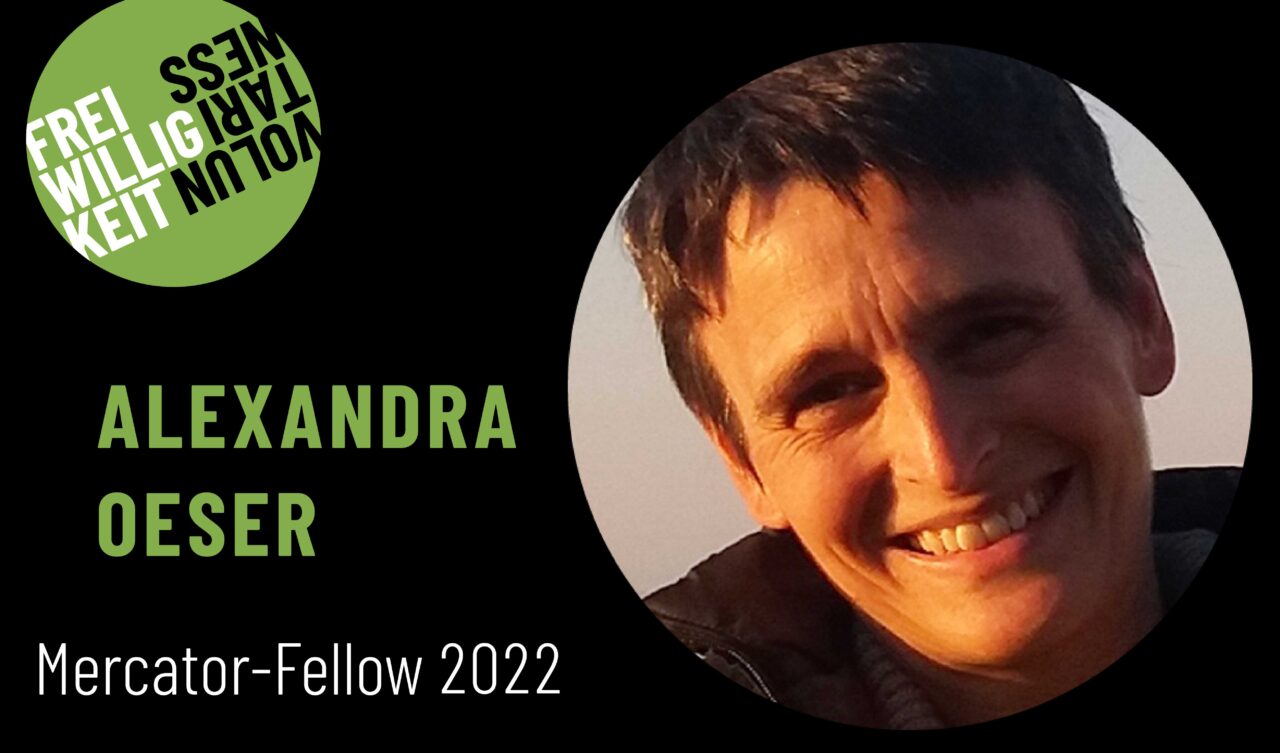
Later I moved on to a very different population. Meaning people that were older, mostly over fifty, namely workers in France. I also focused on a very important event in their lives–the fact that they lost their job–that interfered with their everyday life, with their family life, with their working life. I looked at the way that this redefined their relationship to politics. Certainly, one of the things I come back to every time when I work on these questions are issues of gender and of class. These are questions that came out of the empirical work I was doing on adolescents. In the second project, I was working on a very male industry, the automobile industry, and the fact that the mobilization was so male-dominated quickly became one of the things that I wanted to put at the center of my work.
Jürgen: Thank you so much. At the beginning of your response, you said that you still don’t feel like a voluntariness scholar. So, I was wondering if you might want to elaborate a bit and explain to our listeners and readers how your research does or maybe does not connect to voluntariness.
Alexandra: Yes, one of the reasons I was invited to take up this Mercator fellowship was not as a voluntariness scholar but as a specialist on Eigen-Sinn. Eigen-Sinn is a concept developed by the German historian Alf Lüdtke that I use a lot in my work and that I have helped import into France.
Detour: Thoughts on Eigen-Sinn in the Work of Alf Lüdtke, by Elena M. E. Kiesel
By Elena M. E. Kiesel (Co-Investigator in the Subproject “Voluntariness and Dicatorship: Voluntary participation in the ‘Neuererwesen’ of the German Democratic Republic”)
The concept of Eigen-Sinn is neither a theory nor a method. It is a conceptual approach to research that shines an analytical spotlight on human actions. Through this emphatically subject-focused perspective, in the late 1980s historian Alf Lüdtke opened up conceptually novel ways of investigating individual motivations for action. In the spirit of the cultural turn within the humanities and social sciences, which was associated with a shift away from the antiquated understanding of the term “culture as high culture,” the Eigen-Sinn approach to research focuses on the everyday.
Eigen-Sinn is not originally a scholarly term, but a word found in everyday German (as an English equivalent, albeit one with a vague meaning, Lüdtke suggests “self-reliance”). Primarily used in newspapers’ culture pages and the like or in literary works, today the word has a positive connotation, somewhere between appealing contrariness, charming eccentricity, and refreshing creativity. In addition, Eigen-Sinn crops up in contemporary articles on individual psychology and is often touted as the “royal road” to individual and collective resilience, that is, to persistence in the face of one’s powerlessness. The positive qualities ascribed to this “non-conformity” are rooted in the modern “ethical and aesthetic valorization of the individual” (Thomas Lindenberger) in view of social and political expectations and demands. According to Hegel (Phenomenology of Spirit), Eigen-Sinn is a “freedom that remains bogged down within the bounds of servility.” But Eigen-Sinn did not always have positive connotations. In the nineteenth and early twentieth centuries, the term “eigensinnig” meant something like “stubborn” or “intransigent,” and sometimes even “naturally driven” (in other words socially incompatible), as illustrated satirically by Kafka in his “A Report to an Academy” of 1917.
As a research approach in the discipline of history, Eigen-Sinn embodies a proposal as to how we might conceptualize (historical or contemporary) actors’ everyday action as a concrete object of investigation. In this context, acting subjects are envisaged neither as autonomous nor as subjugated. Instead, the subject-focused approach scrutinizes individual interpretations of human action, including how actors interpret their own action, within a variety of relations and structures of domination. For example, extending a contractually agreed break by a few minutes does not constitute a rebellion against the factory owner’s authority. It does create some personal breathing room (however limited) within a clocked working rhythm. Here the term Eigen-Sinn refers to the discrepancy between the meaning of a given order as intended by the powerful and the meaning actors attach to their actions within this order. Historian Thomas Lindenberger emphasizes that an outward congruence between ideological meaning and the individual ascription of meaning does not necessarily signify that the two are identical.
This research approach can enhance our understanding of both resistant and system-compliant action. Prior to the cultural turn and Lüdtke’s intervention, the scholarly focus was chiefly on the study of fundamental, ideologized drivers of human and social action. The practical and emotional dimensions of historical processes were considered only superficially, if at all. In contrast, Lüdtke’s focus was on the personal, individual motivations of historical actors—on what people “actually do” and their own perspective. By the late 1980s, he was already investigating eigensinnig behavior in the everyday factory life of the German Empire and, finally, individual attributions of meaning to system-compliant actions by workers under National Socialism. He pointed out that Eigen-Sinn means to be “with and for yourself” (following Hegel), to create “niches of space and time for yourself.” During the 1990s, this approach was implemented in research on the GDR by a group of scholars associated with Thomas Lindenberger. Since the early 2000s at the latest, the concept has also been deployed in the research design of other disciplines in the humanities and social sciences.
Further Reading
- Lindenberger, Thomas: Herrschaft und Eigen-Sinn in der Diktatur. Das Alltagsleben der DDR und sein Platz in der Erinnerungskultur des vereinten Deutschlands, in: Aus Politik und Zeitgeschichte 40 (2000).
- Lindenberger, Thomas: Eigen-Sinn, Herrschaft und kein Widerstand, Version: 1.0, in: Docupedia-Zeitgeschichte, 2. 9.2014.
- Lindenberger, Thomas, Lüdtke, Alf: Eigensinn: Handlunsräume und Herrschaftspraxis. Zur Einleitung, in: Życie codzienne, podmiotowość i sprawowanie władzy w XX wieku, hg. von Kornelia Kończal, Poznań 2018.
- Lindenberger, Thomas: Das Land der begrenzten Möglichkeiten. Machträume und Eigen-Sinn in der DDR-Gesellschaft, in Deutschland Archiv (2016).
- Lüdtke, Alf: Eigen-Sinn. Fabrikalltag, Arbeitererfahrungen und Politik vom Kaiserreich bis in den Faschismus, Münster: Westfälisches Dampfboot, 2015.
- Ludwig, Andreas (Hrsg.): Fortschritt, Norm und Eigensinn. Erkundungen im Alltag der DDR, Berlin: Links, 1999.
Alexandra: That was the reason I was originally invited to Erfurt. We wanted to work on different concepts and notably on the relationship between “Eigen-Sinn” and “Freiwilligkeit.” I say it in German because I do feel there is a little difference between the German “Freiwilligkeit” and the English “voluntariness.” The “Freiwilligkeit” aspect, I think, has a tendency to insist more on the individual actors. Even though we also try to understand “Freiwilligkeit” as something that is a norm and which is something that is asked for by, for example, governments. Nevertheless, there is an individual dimension to it.
I think there also is a relationship and tension that we have not worked on enough yet, namely with the notion of agency. What differentiates agency and “Freiwilligkeit”? I’m not even sure I could say that in two minutes. It is one of the questions I have asked myself a lot. Lüdtke’s critical assessment of E.P. Thompson’s work and definition of agency was that he thought it was a little bit romantic. It insisted too much upon using room for maneuver. Obviously in any situation there is room for maneuver, but we also have to take into account the structural constraints. I think that agency is probably the concept that most insists on room for maneuver and I would then say we have “Freiwilligkeit” and “Eigen-Sinn,” which take into account a little more the issues of norms and constraints.
Detour: Thoughts on Agency in Works from Social and Cultural Studies, by Jürgen Martschukat
By Jürgen Martschukat (Principal Investigator in the subproject “Voluntariness as Political Practice: The Emerging United States and American Citizenship”)
In the wake of the social and civil rights movements of the 1960s and 1970s, agency has become a key concept for a politics of equality and in critical social, cultural, and postcolonial studies. In this context, agency has traditionally denoted a combination of self-reliance, self-will, and self-respect among historical actors who struggle against seemingly overpowering structures, social relations, discourses, and processes. Through their agency, historical actors use their cultural, political, economic, and social resources to fight their subalternity and make change. Women resist male doctors and their claim to control over their bodies, workers go on strike, waiters spit in the soup, and consumers boycott stores in response to unfair practices. In all these cases of seen and unseen protest and resistance, agency denotes the willingness and ability to confront seemingly overwhelming discourses and structures, to rebel or to write hidden and not-so-hidden transcripts of resistance, and sometimes just to walk away.
Yet this notion of agency as an empowering ability to act and resist requires amendment. Liberal societies, though they have never fulfilled their promise of equality for all, expect people to take action and to be in control of their own lives. These societies are informed by the premise that their citizens will use their freedom voluntarily, judiciously, and efficiently, while presenting themselves as self-reliant, productive, and pro-active. Here, obviously, power does not work by constraining human conduct or through outright coercion, but by inciting people to be pro-active. The ideal type of a good liberal subject is busy, active, and seeks to achieve things, in other words, possesses agency. Therefore, agency is not necessarily tied to resistance or withdrawal, but may involve compliance with the demands of power.
Recent conceptual modifications in social and cultural studies prompt us to further rethink the concept of agency and the power of actors. For instance, historian Chris Forth points out that a substance such as fat “has the capacity to assert itself, to resist or ‘object’ in its relationship with subjects. … Like any object, it can seemingly ‘object’ to our wishes as it pursues its own agendas.” In presenting his ideas, Forth refers, among other things, to actor-network theory, the study of matter, and the work of sociologist Bruno Latour, who has himself contributed substantially to shaping this wider notion of agency. According to Latour, human willpower is not the master of agency, and an actor should not be seen as the origin of an action, but as someone or something that “is made to act by many others.” Latour and actor-network theory conceive of the social as an endless number of flexible associations. In this assemblage, “any thing that does modify a state of affairs by making a difference is an actor.” Latour uses the term “actant” to denote non-human actors of various kinds: substances, things, artifacts, or institutions that may exert agency as part of multiple associations and complex networks.
Agency, then, is neither a privilege of human actors endowed with willpower of some kind, nor is it an exclusively liberating and empowering force. In a society governed through freedom, voluntary participation, and engagement, agency exerts power as both an enabling and normative, regulatory force.
Further Reading
- Forth, Christopher E., “On Fat and Fattening: Agency, Materiality and Animality in the History of Corpulence,” Body Politics 3, no. 5 (2015): 51-74.
- Latour, Bruno, Reassembling the Social: An Introduction to Actor-Network-Theory, Oxford: Oxford University Press, 2005.
- Mackert, Nina and Jürgen Martschukat, “Introduction: Fat Agency,” Body Politics 3, no. 5 (2015): 5-11.
- Rose, Nikolas, Powers of Freedom: Reframing Political Thought, Cambridge: Cambridge University Press, 1999.
- Scott, James C., Domination and the Arts of Resistance: Hidden Transcripts, New Haven, CT: Yale University Press, 1990.
Alexandra: Voluntariness is an ethical concept because it judges people. If you say someone is engaged voluntarily, it could be really good, if it’s a noble cause. But this same voluntary engagement can also be very negative. Whereas in the term “agency” the judgmental dimension is a lot less present. Even though there is also a normative dimension to agency–Lüdtke called that the romantic dimension of agency. It implies that it is good to be an agent, it is good to be able to use your room for maneuver; and it has an implicit link to a certain notion of “freedom.” In Eigen-Sinn you obviously have a slightly different normative connotation, but it’s also a normative word.
All these words have normative connotations. I think that is something we worked explicitly with, notably, Jürgen, our article that we wrote together. And it’s something that I have not as explicitly worked on when I used these concepts. The whole question of how the normative uses of these three concepts actually influence our research and our theoretical framework for the research is something that has become much more important in my work since I was in Erfurt.
Jürgen: If I understand you correctly, one of the main overlaps between these three concepts–agency, voluntariness and Eigen-Sinn–is what drives people in their actions, what makes people act in general and what makes them act in a particular way. How it is seen from the outside, the normative dimension of these three concepts. And it seems to me that maybe the question of compliance and non-compliance with demands is somehow something that all three concepts are dealing with or revolving around.
Alexandra: I suppose in agency compliance is not so present. For Lüdtke it was a very important question and he said that compliance with an order actually never exists. You cannot comply completely with any order. You always interpret the order in your own way. Therefore, complete compliance cannot even exist. Which is why he insisted upon Eigen-Sinn because it allowed him to push that question of less than complete compliance into something conceptually different. And in “Freiwilligkeit” the compliance is not really important in negative “Freiwilligkeit,” compliance with an order to kill, for example. If we use Eigen-Sinn to think about that we would say: Because there is never full compliance with any order, the fact of killing will always have the dimension of “Freiwilligkeit” in it. In this example, Eigen-Sinn and “Freiwilligkeit” are complimentary. In an everyday definition of voluntariness, compliance would be the opposite of voluntariness. To comply wouldn’t be voluntary. In the way we have defined voluntariness within the research group, I think we would rather say compliance is not the opposite. Instead, the opposite of voluntariness is involuntariness, which means doing something non-voluntarily. There is also a tension between compliance and these other three concepts. I suppose that agency and compliance probably oppose each other the most.
Jürgen: I planned to ask you how the group and collaborating with us has somehow affected your research perspective. You commented on this already by saying that it kind of triggered you to pay more attention to the normative dimensions of “Mitmachen,” Eigen-Sinn, voluntariness. I’m not sure if you want to further comment on this?
Alexandra: Well, if I may, I would love to comment on our collaboration, the collaboration with you, that was a lot of fun and is still going on. Because writing with you I think brought my attention to the fact that we also wrote about many other things–beyond the frameworks of voluntariness. That became clear when writing with four instead of two hands and in situations of discussing every word used. That’s when I realized how much my language was influenced by my own research history. There is something which I thought is actually important in the way that we think about voluntariness. It is the question of the heights of command. We’ve been discussing this very intensely and you don’t like the expression heights of command. You think it sort of creates a hierarchy and there are people above and below. Coming from a Foucauldian perspective you think that power circulates and I agree that power circulates. Simultaneously, I also think it’s very important to distinguish between classes and hierarchical positions within a society. It is not the same being a worker in an automobile factory or being a politician or being a manager who earns ten million euros a year. I do think that it is important to remember that there are social differences in circulating power relations. And even though the dominant are dependent on the dominated, we are not the same. It is important to express this in words and I think we actually agree on this. We are on the same page, but we don’t use the same language.
I thought that was very interesting during our work–and also very intense. To have to question words that I’m using habitually, but which you never use (such as a phrase like ‘heights of command’) and that such things start to clash when we are writing something together. I thought that was very interesting because it called into question the way I write. It also called into question what it actually means to use certain words and not others. Obviously, since that’s the process of becoming a researcher, we make certain decisions–and still, to write with someone who conceptually comes from another school was really challenging. Probably, that’s what I took from our cooperation more than anything else.
Jürgen: What I would like to add, if I may, is something that is kind of at the heart of this Mercator thing: you try to invite international scholars. And I think one of the factors that maybe made this collaborative writing even more complicated than it is anyway, is that we were dealing with two or maybe two and a half languages. German, English and a little bit of French. With those different languages there always come subtle differences in the use of words and also in the way of writing. Even though I’m German, my style of writing is impacted by the American style of writing and so on and so forth…
Alexandra: Yeah, there is a style of writing that is German, but I write in French and I am very much influenced by French sociology. I wouldn’t call myself a Bourdieu scholar, but I’ve read Bourdieu and I find his work very inspiring. The way he uses the notion of habitus is especially important. Having read that kind of sociology a lot surely influences the way I write. It’s something that certainly has also been a challenge.
Detour: Audio Snipped from the Interview
Alexandra Oeser on her challenges of voluntary political engagement on the ground in Paris-Nanterre (transcipt below):
Jürgen: There still is one question which I would very much like to address. It somehow connects to something you said at the very beginning of your comments, namely your interest in the politics of everyday life. If you are not a visiting scholar at some prestigious institution, which you obviously often are, you teach at Paris-Nanterre. Nanterre does not belong to the financially privileged academic institutions in France, if I am not mistaken, and it is a hotspot of political activism. I would like to invite you to reflect a bit on the significance of voluntary political engagement in the current situation in Nanterre–maybe even in France in general if that isn’t too big. The idea is that we, so to speak, connect our academic work to the real politics on the ground in our everyday lives.
Alexandra: Teaching in a political hotspot is an engagement with life really. I’m not sure I can say it is voluntary. I think I have to say it is necessary. It is something that I don’t think I choose but I have to do, because the situation in Nanterre is difficult. It is difficult financially, especially for the students. We have about 36,000 students and a very heterogenous student body. Some students come from La Défense and have perfectly well-situated parents. Others come from far away. They come from the outskirts of Paris, or they come from different countries. We have a lot of people that come from West Africa, for example. I’m involved with many of them through a mission I do for the presidency of the university. In that role I take care of the students that have economic difficulties or difficulties with health. And we regularly deal with about 2,000 requests a year from students that don’t have housing, that don’t have food. You can imagine that if you have neither a house nor anything to eat, studying becomes almost impossible. So that mission tries to give an overview of the different institutions that exist within the university, but also in the city of Nanterre. We try to reorient students to help them when they are in difficulty. Part of this is getting them to fill out the forms, since that’s one of the things they have to do in order to get access to individual help.
During the Covid-19 pandemic, the university put into place urgent support for students. Yet, the pandemic made us see what was there already, but which was more hidden. Since students lost all their informal jobs and lost access to affordable food services, that resulted in a crisis in Nanterre, in which we as professors collected funding amongst ourselves. In the aftermath of the pandemic the university realized that there needed to be more help than what existed already and set up this individual caretaker. One woman was recruited especially for taking care of these students in difficulties. Her job is to accompany them individually and direct them to the different institutions which are able to help them. The problem is that this woman was very soon overrun with the high demand. We are now trying to get a second person who can take care of that, because she was dealing with too many dossiers and can’t cope anymore. Furthermore, her working conditions are unfortunately not very good and she is not paid very well. Actually, there is not much money to help. And so it is a very difficult situation where we take care of precarious students by creating precarious administrative jobs. So that’s a very difficult situation we work in–which can generate a lot of violence. That includes violence toward the staff that take care of the students–but in a way that they are not necessarily trained for. So we, as professors for example, neither have psychological training nor do we have social training. But we do the jobs of psychologists.
Jürgen: So if I may ask just for the sake of clarity: This social engagement, if I may call it that, is not part of your regular job description, right? So it would be usually considered voluntary engagement. But you say it is not voluntarily done, because there is a necessity. So there is a certain tension that speaks to the deficits of the system, if I may put it like that?
Alexandra: Yes. And that tension obviously can have dramatic outcomes. I mean, there are students that sleep on the street and there are professors that have burnouts. And there is a lot of violence, there is a lot of sexual violence on the campus between students, between staff and students. There is tension between education and the users of that education system. The recent very dramatic example–which is not from the education system but has to do with it–is Nahel [Merzouk], the young man from Nanterre, who was shot by the police. His death led to a certain number of revolts, including riots against the education system. There were schools, primary schools and kindergartens that were burned and attacked. And that tension is a tension that expresses these difficulties that these institutions actually have in tackling the many structural problems that they are confronted with. It is injustice because this population experiences those conditions from the kindergarten to adult life. The institutions we represent, the educative institutions from kindergarten to university, do not manage to propose a solution that actually can help students or can help children from underprivileged families to come out of that condition. We are not able to because we don’t have enough government funding. We don’t have enough jobs in order to tackle that question significantly and as we should tackle it. And that is also why we as professors take over work that should be taken care of by psychologists, by social workers. They would need jobs in those institutions in order to take care of these problems.
Jürgen: Thanks so much, I mean that’s a great ending of our exchange which is of course a never-ending exchange, I hope. We started with, let’s say, conceptual nuances and problems of the question of voluntariness with regard to Eigen-Sinn and agency and we ended up with voluntary engagement on the ground, in everyday politics and in your personal life. I think that is a wonderful exchange. Thanks so much!
Alexandra: Yes, thank you!
Suggested Citation: Oeser, Alexandra and Jürgen Martschukat: “Joys and Challenges of Researching Voluntariness: An Interview with Alexandra Oeser”, Voluntariness: History – Society – Theory, March 2024, https://www.voluntariness.org/joys-and-challenges-of-reseraching-voluntariness/.


